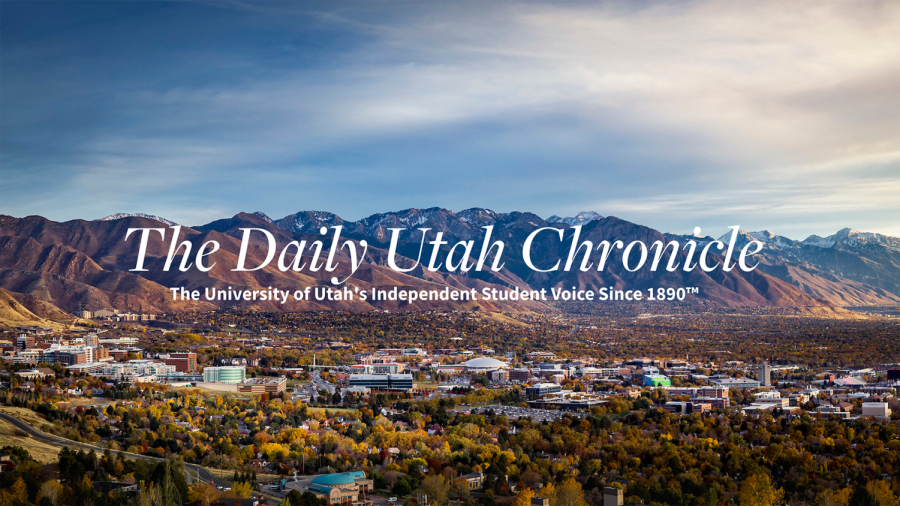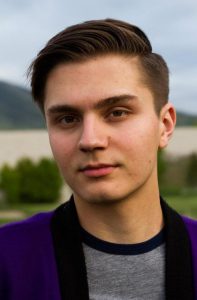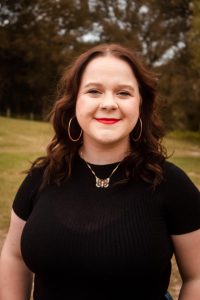Spending Fall Break Alternatively, Bennion Center’s Alt Breaks Stay Local
October 1, 2021
Some students will be spending their fall break a little differently. They may be learning about the housing crisis, raising awareness for immigration or participating in environmental conservation projects, all offered through the Bennion Center’s Alternative Breaks Program.
“We call alternative breaks justice-based experiential learning opportunities,” said Alternative Breaks Program Coordinator Grace Hymel.“That is a bunch of fancy words for saying that they are experiences that are designed to visit local and distant communities across the western United States to engage in service activities, education and reflection, all in the name and goal of working towards justice.”
Alternative breaks are social justice programs held over fall and spring break. They are offered through the Bennion Center in collaboration with nonprofit organizations. Fall 2021’s alternative breaks gave students a variety of service projects to choose from.
According to Hymel, there are three aspects to alternative breaks: quality community engagement, direct engagement and patient reflection.
“For direct engagement with our communities, we could be partnering on a lot of different projects,” Hymel said. “For example, our immigration experience that happens in San Diego — they might be out at the border distributing water to people. Or it could be an urban environmental experience, working in a local garden helping harvest food for equitable food access.”
The Alternative Breaks Program, like many others, had to make adjustments due to the onset of COVID-19. Per COVID-19 guidelines, typical alternative breaks were not able to be held during spring semester, so they began a program called AB Lite.
“We wanted to provide alternative break-like experiences,” Hymel said. “We did what is called an AB Lite or Dated Hyper-Local COVID-conscious experience.”
These AB Lites took place in Salt Lake City and lasted one to two days. They were focused on social topics.
“Sometimes it was harder to find engagement opportunities with nonprofits,” Hymel said. “So AB Lites were more focused on education.”
The upcoming fall alternative breaks will also take the form of AB Lites.
“We are running six breaks in the fall,” Hymel said. “They are all going to be in Salt Lake City with the exception of one that is going to the San Rafael swell and camping in individual tents.”
These breaks will begin on Oct. 11 and will be week-long, non-overnight experiences, having people abiding by COVID-19 guidelines and returning to their residence at the end of each day.
“We still will be able to have all the really valuable community-building experiences, and do direct engagement, education and reflection,” Hymel said.
Hymel praised alternative breaks for all that they have to offer, even as an AB Lite.
“It’s a great opportunity to build community,” Hymel said. “When you are doing an alternative break, it’s a deeply immersive experience. So, the people that you’re with, you get close to, you get to know them, you form this really intense and special bond.”
As an undergraduate, Hymel participated in an alternative break with her university. She remembers these experiences quite fondly.
“In college, the one that I did was focused on housing justice in Washington D.C. and I learned so much,” Hymel said. “There are things I think about today from education workshops that we did on minimum wage and how that has affected the housing crisis.”
Hymel said in her experience they broke down the root causes of homelessness and housing injustice.
“I think that alternative break was just kind of a big kickstarter for me,” Hymel said. “It changed the way that I think about the world and the way that I choose to engage, and I know so many people who feel really similar.”
Izzy Fuller, a fourth-year studying urban ecology and environmental & sustainability studies, is leading the Urban Environmentalism Experience this fall break.
“We’re focused on equitable access by different populations in three categories: transportation, food systems, and green space. We partner with community members and organizations that fall into these three fields and work with them to participate in direct engagement and/or education,” said Fuller in a written statement.
The Urban Environmentalism experience will collaborate with local organizations such as the Food Justice Coalition, Og-Woi People’s Orchard, Jordan River Commission, TreeUtah, Seven Canyons Trust and Edible Campus Gardens.
“We hope that alternative break experiences serve as catalysts to promote lifelong activism and pursuit of justice,” Fuller said. “Participants build a sense of community with one another and have opportunities to network with community members and organizations.”
In planning her break, Fuller said she learned the only thing someone can count on is change. The experience was originally going to be in Portland but because of COVID-19, the program decided to keep it in Salt Lake.
“While pivoting after beginning to make plans in another city was a challenge at first, it became easier to see the positives — less stress, easier connections where I live and go to school, and more potential for more consistent collaboration into the future,” she said.
The deadline to apply for fall semester’s alternative break experiences was Aug. 28. However, spring semester’s alternative break experiences were just announced. Visit the Bennion Center’s website to learn more.









